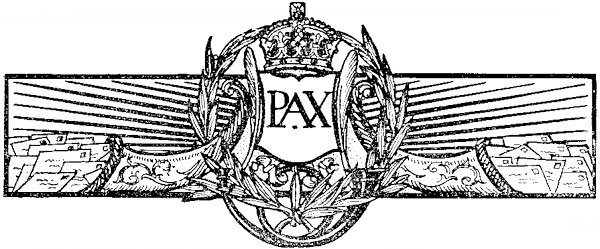Roman Provincias > Provincia Gallia Lugdunensis
Provincia Gallia Lugdunensis

Background
Provincia Gallia Belgica, commonly known as Gallia Belgica, was a Roman province situated in the northern part of Gaul, roughly corresponding to modern-day Belgium, northeastern France, Luxembourg, and parts of the Netherlands and Germany. Here's an overview of the province:
Conquest and Formation:
Gallia Belgica was established as a Roman province in 22 BCE by Emperor Augustus after the defeat of the Gallic tribes during the Gallic Wars (58-50 BCE) and the subsequent Roman conquest of Gaul. The province was named after the Belgae, a confederation of Celtic tribes who inhabited the region and had resisted Roman rule during the Gallic Wars. The Romans divided the conquered territory into several administrative regions, with Belgica being one of them.
Geography:
Gallia Belgica was characterized by diverse geographical features, including fertile plains, dense forests, and river valleys. It was bordered by the Rhine River to the east, the North Sea to the north, the English Channel to the northwest, and the provinces of Germania Inferior and Gallia Lugdunensis to the east and south, respectively. The province benefited from its strategic location along major trade routes, which facilitated commerce and communication with other parts of the Roman Empire.
Urban Centers and Infrastructure:
Durocortorum (modern-day Reims) served as the capital and largest city of Gallia Belgica. It was an important commercial, administrative, and military center, boasting Roman monuments such as temples, forums, and amphitheaters. Other significant cities in the province included Augusta Treverorum (modern-day Trier), Bagacum (modern-day Bavay), and Durocortum (modern-day Châlons-en-Champagne). These cities were connected by a network of roads, bridges, and aqueducts constructed by the Romans to facilitate transportation and trade.
Economy and Resources:
Gallia Belgica was an economically prosperous region, known for its agriculture, trade, and natural resources. The province produced a variety of crops, including grains, grapes for wine production, and flax for textiles, which were cultivated in the fertile plains and river valleys. Mining was also an important industry in Belgica, with the province being rich in mineral resources such as iron, lead, and coal. These resources were mined and exploited for export to other parts of the Roman Empire.
Culture and Society:
The population of Gallia Belgica was ethnically diverse, consisting of Roman settlers, indigenous Belgae, Celts, and other ethnic groups. Latin was the administrative language of the province, although indigenous languages may have also been spoken. Romanization had a significant impact on the culture and society of Gallia Belgica, with Roman customs, laws, and institutions gradually replacing indigenous traditions. Roman religious beliefs and practices coexisted with local cults and deities, and temples dedicated to Roman gods and goddesses were erected throughout the province.
Legacy and Decline:
Gallia Belgica remained under Roman rule until the decline of the Western Roman Empire in the 5th century CE. Following the Roman period, the region was ruled by various powers, including the Franks, the Holy Roman Empire, and later medieval and modern Belgium, France, Luxembourg, and the Netherlands. The legacy of Roman Gallia Belgica endures in its archaeological sites, monuments, and cultural heritage, which provide valuable insights into the history of the region and its interactions with the broader Roman Empire.
Roman Provincias
Roman Provincias List
- Provincia Achaea
- Provincia Aegypti
- Provincia Africa Proconsularis
- Provincia Cottiae
- Provincia Maritimae
- Provincia Alpes Poeninae
- Provincia Arabia Petraea
- Provincia Armenia
- Provincia Asia
- Provincia Assyria
- Provincia Augustamnica
- Provincia Bithynia et Pontus
- Provincia Britannia Inferior
- Provincia Britannia Superior
- Provincia Britannia
- Provincia Byzacena
- Provincia Cappadocia
- Provincia Cilicia
- Provincia Corsica et Sardinia
- Provincia Crete et Cyrenaica
- Provincia Cyprus
- Provincia Dacia Aureliana
- Provincia Dacia
- Provincia Dalmatia
- Provincia Galatia
- Provincia Gallia Aquitania
- Provincia Gallia Belgica
- Provincia Gallia Lugdunensis
- Provincia Gallia Narbonensis
- Provincia Germania
- Provincia Germania Inferior
- Provincia Germania Superior
- Provincia Hispania
- Provincia Hispania Baetica
- Provincia Hispania Citerior
- Provincia Hispania Lusitania
- Provincia Hispania Tarraconensis
- Provincia Hispania Ulterior
- Provincia Iudaea
- Provincia Lycia et Pamphylia
- Provincia Macedoniae
- Provincia Mauretania
- Provincia Mauretania Caesariensis
- Provincia Mauretania Tingitana
- Provincia Mesopotamia
- Provincia Moesia
- Provincia Moesia Inferior
- Provincia Moesia Superior
- Provincia Pannonia
- Provincia Pannonia Inferior
- Provincia Pannonia Superior
- Provincia Pannonia Valeria
- Provincia Raetia
- Provincia Sicilia
- Provincia Sophene
- Provincia Syria
- Provincia Syria Palaestina
- Provincia Syria Phoenice
- Provincia Thracia